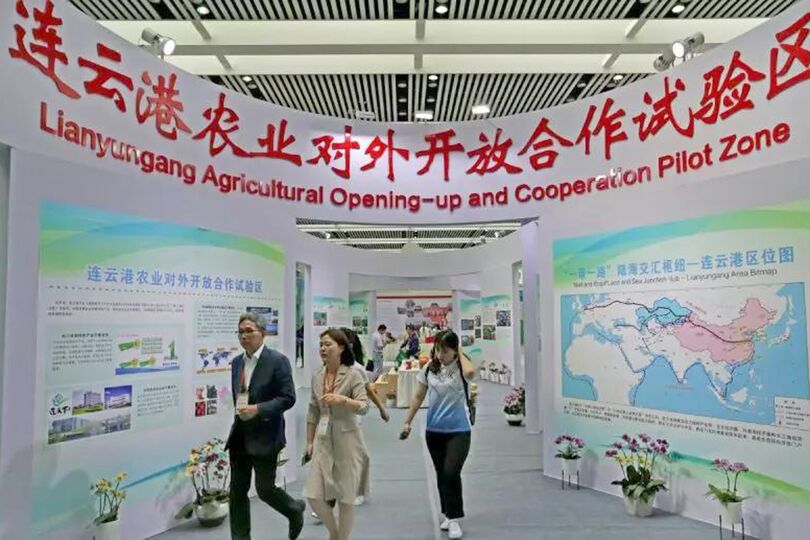The 21st exhibition of international cooperation in agriculture opened in Lianyungang in the Jiangsu Province on 20 September 2019, under the official name International Agricultural Investment and Trade Cooperation. It was attended by over 300 experts from relevant agencies, joint ventures and associations, and included the leaders of the People's Government of the Jiangsu Province and Lianyungang.
Speaking at the opening ceremony, Deputy Head of the People's Government of the Jiangsu Province Wang Jungpin and Vice Mayor of Lianyungang Xiang Xuelong noted the province's successes in agriculture and the potential of the port of Lianyungang in expanding trade in the region. Representatives of the SCO Secretariat also took part in the event. One of them read a message of greetings from SCO Secretary-General Vladimir Norov, which mentioned the role of the agriculture exhibition and its achievements that have allowed it to become one of the best platforms for investment cooperation in agriculture.
"The city of Lianyungang is a guarantee of success for the exhibition. It is a point of departure for the economic corridor of the new Asian-Eurasian Land Bridge, which links many states and provides logistics service to many countries, including members of the SCO. Two SCO members — China and Kazakhstan — have built a distribution and commodity transit base; the SCO logistics park is under construction," the message reads. Mr Norov noted the big export potential of the SCO countries in supplying high quality organic agricultural products to the Chinese market and the factors that will facilitate growth in trade.
He said that first, the SCO countries are a large consumer market with a population of over three billion people. They are rich in natural resources and have advanced production capacities. Second, the SCO is aimed at promoting multilateral cooperation in trade, investment, agriculture and food safety. Third, SCO countries have common borders with China.
Mr Norov spoke in this context about the high strategic potential of transport corridors in Central Asia that link China with countries in the CIS, Europe, the Middle East and South Asia with the shortest routes. It is difficult to overestimate the importance of economic corridors like China-Pakistan or Uzbekistan-Kyrgyzstan-China. The implementation of related projects will facilitate transport links in these regions and increase trade, in part, in agricultural products.
Mr Norov also suggested focusing joint efforts on expediting the coordination of sanitary and phytosanitary standards and overcoming certification and customs barriers.
"The SCO means stability, dynamism and prospects. The areas of cooperation we mapped reflect our common interests. In effect, these are the areas in which the SCO is willing to actively cooperate with the city of Lianyungang," he noted.
An investment and five other thematic seminars were held as part of the exhibition. Guests visited the pavilions and saw demonstration stands and exhibition products from the participating countries.
